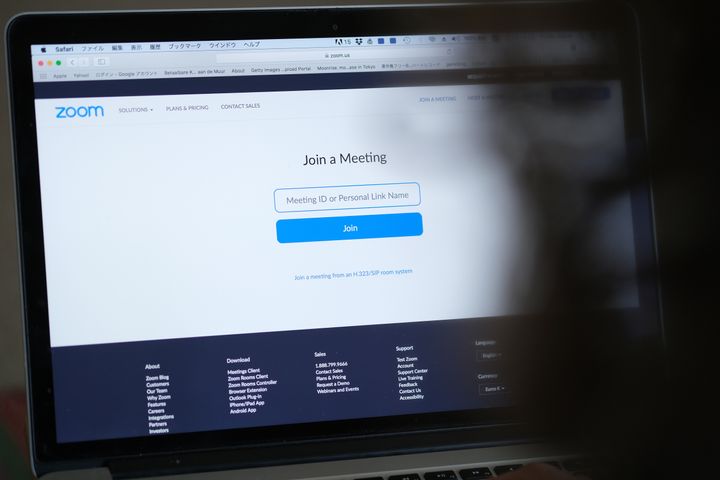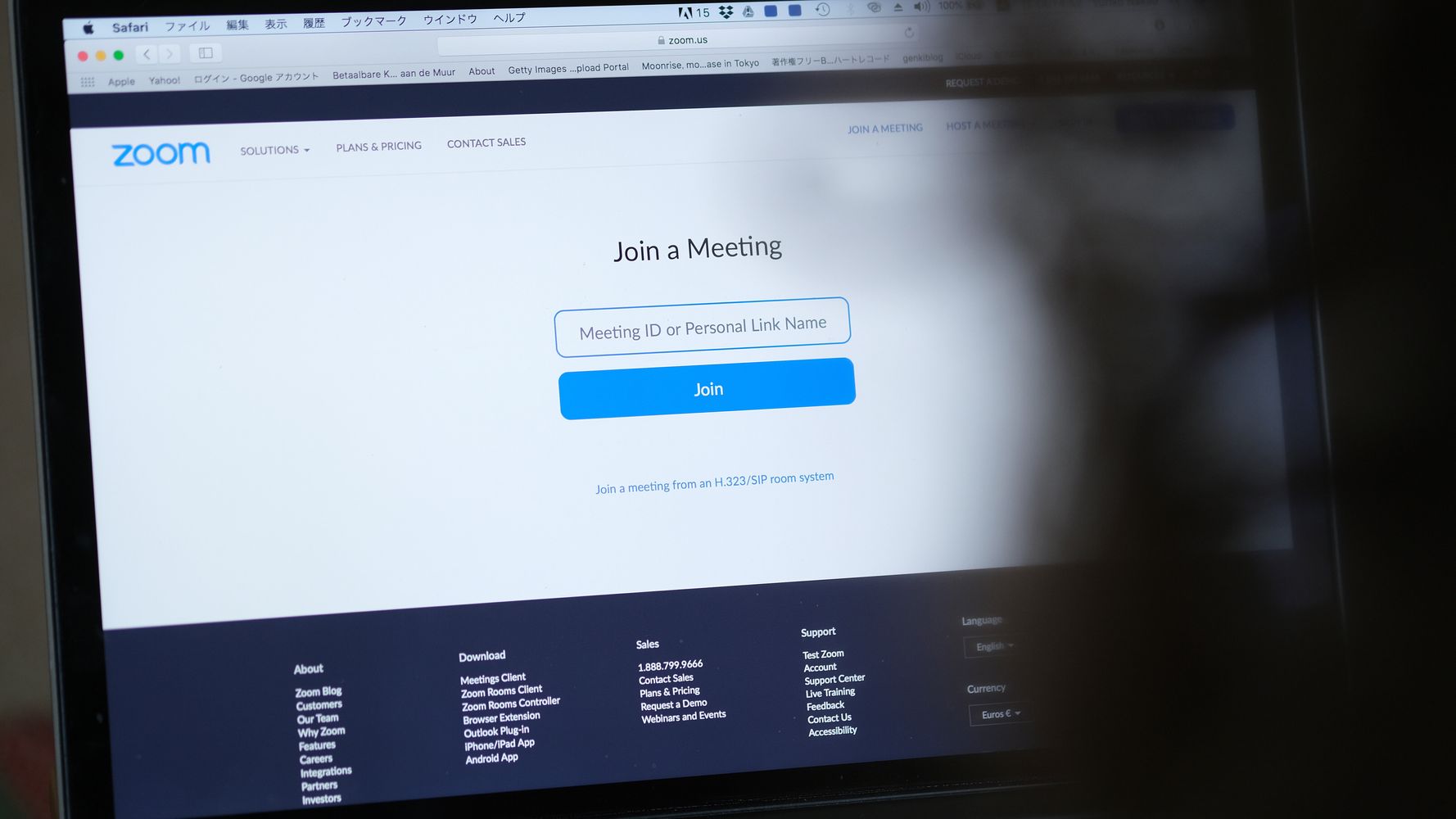[ad_1]
Soumaya Khalifa logged on to Zoom early in the morning on March 30 to prepare for the first session of what she hoped would be an uplifting daily ritual during the coronavirus pandemic. As founder of the Islamic Speakers Bureau of Atlanta, Khalifa said she thought inviting mindfulness and positivity experts to lead virtual morning talks would strengthen her community in a time of uncertainty.
But right after she signed on, about 20 people flooded the meeting and started to taunt her, she said ― calling out her name, commenting on her “hat” (she wears a hijab) and telling her to “take it off and let us see your hair.”
Then, she said, pornographic images started popping up on the screen.
Khalifa was the only person on the call at the time. Not wanting to expose the day’s speaker to what was happening, she decided to quickly end the meeting.
“It was overwhelming. I was traumatized and physically shaking,” Khalifa told HuffPost. “It was like wolves coming at me from all directions. You get rid of one and 10 more pop up.”

As schools, businesses and other social groups move online during the pandemic, incidents of “Zoombombing” ― the organized trolling of video conferences on platforms like Zoom ― are emerging nationwide.
Some of the raids are organized by teenagers looking to derail and disrupt their school classes, The New York Times reports. But other attackers appear to have more sinister intentions. Using websites popular with the far-right, extremists are reportedly exploiting society’s sudden dependence on video conferencing technology to coordinate malicious attacks on religious and racial minorities.
Last week, the FBI said it had reviewed over 1,200 complaints “related to COVID-19 scams” online, including multiple reports of video conferences being disrupted by “hate images and threatening language.”
Asked for details about the targets and nature of these hate messages, the FBI declined to elaborate to HuffPost.
Previous studies have shown that the targets of online harassment are most often women, people of color, religious minorities and members of other marginalized groups.
Over the past few weeks, anti-Semitic trolls have disrupted an online Torah lesson with shouts of “Heil Hitler,” and posted neo-Nazi memes while a Jewish university president gave his Passover message.
New Jersey’s St. Paul AME Zion Church, a historically Black congregation, was exposed to images of lynchings and pornography during a Zoom church service last month, Religion News Service reports.
Khalifa told HuffPost that, given the comments the attackers made about her headscarf during the raid on the Islamic Speakers Bureau meeting, she believed she was targeted for her faith.
In the days after the attack, Khalifa created a Zoom waiting room for the sessions and assigned two colleagues to monitor who was allowed in. Still, some troublemakers managed to slip through, she said ― mocking the Islamic practice of abstaining from pork on one day and calling a Black imam the “N-word” a few days later.
“It was targeted,” Khalifa said of the harassment the sessions have received. “Every message was targeted on who was there.”
Just like other forms of public hate speech, Zoombombing will likely exact a high psychological toll on religious minority communities, according to Nadia Ansary, an expert in cyberbullying prevention and a scholar at the Institute for Social Policy and Understanding.
“The coronavirus has most certainly increased our collective stress and anxiety,” Ansary told HuffPost. “Zoombombing opportunistically takes advantage of this challenging time to target minorities who are already vulnerable.”
The Anti-Defamation League, which has been tracking instances of Zoombombing against Jewish institutions, warned that extremists have already seized on the coronavirus pandemic as a “vehicle to spread their hate and conspiracies.”
With many Jewish families depending on videoconferencing tools to preserve a sense of community during Passover, which begins Wednesday night, the ADL held an online seminar this week with tips on how to prevent Zoombombing. The organization has also been encouraging Jewish communities to report any instances of the practice to the FBI’s Internet Crime Complaint Center.
“Extremists really never miss an opportunity to exploit a crisis and to further their hateful agenda. We, too, cannot miss an opportunity to respond,” Oren Segal, vice president of the ADL’s Center on Extremism, said during the webinar.
Last week, Zoom apologized for failing to meet users’ privacy expectations and announced a plan to shift all its engineering resources to improving security. Since then, the company has implemented changes that make it easier for hosts to keep meetings private and to monitor guests.
Khalifa said she encourages others to take advantage of the changes Zoom has put in place. At the same time, she said it’s been “really sad” to adjust to this new reality. The morning inspirations she helped plan were meant to be open to the public. She said she worries that, in excluding usernames that they don’t recognize, moderators are also excluding people who genuinely want to attend the meeting.
“We want people to come on and be inspired,” she said. “We’re not reaching as many people as we hoped because of what’s happening with this compromised platform.”
But it’s better, she added, to “be careful and take the safe route.”
A HuffPost Guide To Coronavirus
Calling all HuffPost superfans!
Sign up for membership to become a founding member and help shape HuffPost’s next chapter
[ad_2]
Source link

